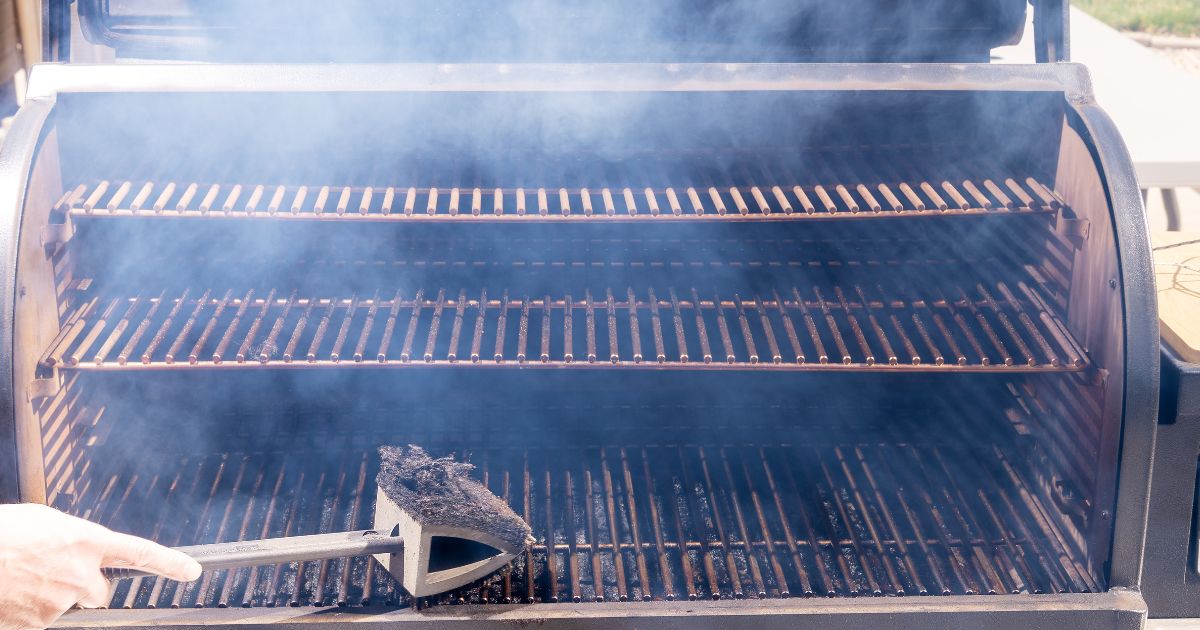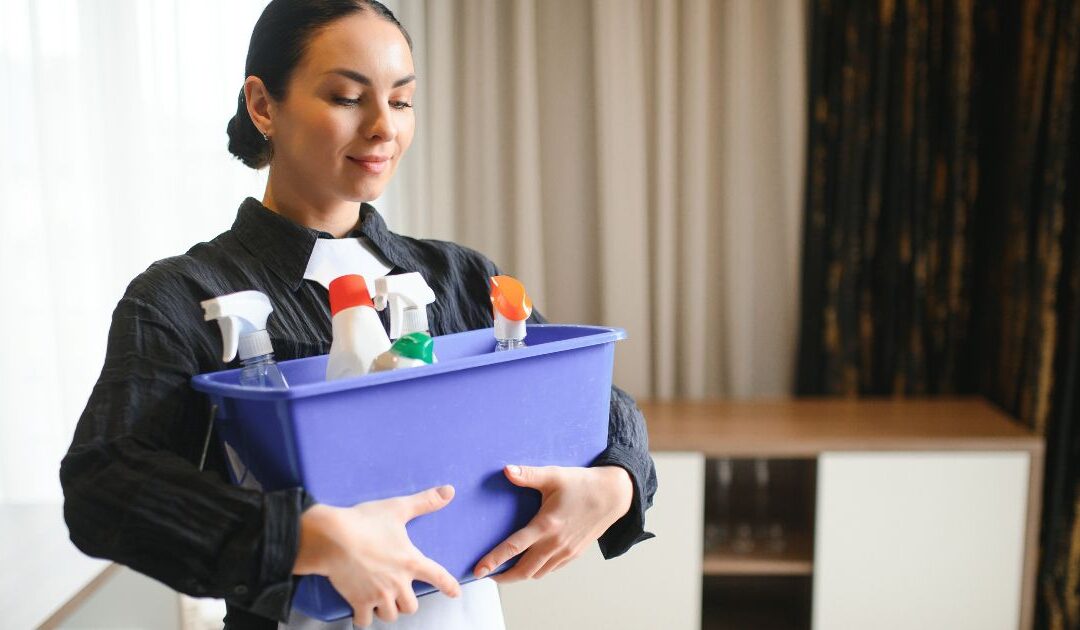What Is the Bar-B-Clean Franchise Opportunity?
Bar-B-Clean is a barbecue grill cleaning franchise in the home-services sector. According to the company, franchisees use a proprietary steam-cleaning system to make grills “completely clean to the touch”. The business is family-focused and health-oriented, promoting safe outdoor cooking. Bar-B-Clean was founded in 2012 and began franchising by 2014. It has since grown modestly – IFPG reports roughly 50–100 units open (about 80) in the U.S.. Each franchise territory covers about 75,000 households, and owners operate from home (no storefront required) using mobile equipment. In practice, franchisees clean residential (and some commercial) grills and smokers, offer minor repairs, and can even sell replacement parts or new grills. Bar-B-Clean pitches itself as a low-overhead, home-based franchise – equipment fits in any vehicle, and the “green” steam process uses no harsh chemicals.
Company Overview and Industry
Bar-B-Clean fits in the home services / repair category. Founder Bryan Weinstein started the company after seeing no other professional grill cleaners in his area. The brand grew slowly: as of 2025 there are around 50–100 franchised units. The industry is very niche – essentially barbecue cleaning and repair. Bar-B-Clean is the dominant franchise in this niche. Its home page emphasizes the proprietary steam system that blasts away grease. Growth milestones include reaching 80 franchised units and expanding nationwide, though the brand remains much smaller than major service franchises. (The franchise is U.S.-only, no international expansion.)
What Franchisees Get
Bar-B-Clean franchisees receive an operational playbook and support to clean and service grills. The core services offered include cleaning barbecue grills with high-pressure steam, performing minor repairs, and installing replacement parts or grills through manufacturer partnerships. They may also add related services like fireplace cleaning. Training is provided: new owners attend a 2-day onboarding (classroom and field) and ongoing coaching. The franchisor supplies marketing materials (e.g. direct mail templates, local SEO guidance), a CRM for customer scheduling, and periodic national ads. Bar-B-Clean emphasizes that its business model is home-based, semi-absentee. Owners often start the business themselves but can hire one technician and one office staff (techs earn commission on repairs). The typical customer base is mainly residential homeowners who grill; some business accounts (restaurants, condos) can be pursued, but the model mostly targets B2C (although IFPG lists it as B2B & B2C).
Startup Costs and Ongoing Fees
Starting a Bar-B-Clean franchise requires a moderate initial investment. IFPG’s summary shows an estimated total investment of $78,200–$99,120. This includes the $49,500 franchise fee for one territory, equipment package (pressure washer, vacuum, accessories), marketing launch funds, vehicle setup, insurance, etc. The FDD targets individuals with about $100K in liquid capital and $250K net worth. Once open, franchisees pay ongoing fees: a 6% royalty on gross sales and a 2% brand fund contribution. (Veterans get a 10% discount on the initial franchise fee.) Overall, Bar-B-Clean’s fee structure is relatively simple: 50% of revenue goes to the owner (after tech pay and expenses) if structured well. IFPG also notes an Item 19 earnings claim: for example, an owner-operator had gross sales of $383,243 and adjusted earnings around $129,907, and the top franchise hit $1,091,607 gross. These figures indicate that while some franchises can reach 7-figure revenue, the typical unit is much smaller (see below).
How the Industry Itself Compares
Bar-B-Clean Industry Advantages
- Niche Expertise, Limited Competition: Bar-B-Clean occupies a very specific niche (barbecue grill cleaning) with few national competitors. Local cleaning companies rarely specialize in grills, so Bar-B-Clean franchisees face little franchise-level competition.
- Low Overhead, Home-Based: As a home-based service business, startup costs are modest. The equipment (steam cleaner, vacuum, etc.) is portable and “fits in any car trunk”. There’s no real estate lease needed. This keeps ongoing costs low.
- Proprietary Cleaning System: Bar-B-Clean’s proprietary steam cleaning (an eco-friendly, high-temperature system) is a unique selling point. It differentiates the franchise and assures customers of a safe, chemical-free service.
- Additional Revenue Streams: Franchisees can offer repairs, replacement parts, and even new grill sales through manufacturer relationships. These partnerships allow deep discounts on grills/parts for resale.
- Lifestyle and Passion: Many owners are outdoor-cooking enthusiasts. The work involves traveling to clients’ homes and working outside in good weather, which some entrepreneurs find appealing.
- Steady Homeowner Demand: People love grilling, especially in summer. As long as homeowners use grills, they need maintenance. Bar-B-Clean brands tap into the trend of health-conscious outdoor cooking.
- Support and Training: The franchise provides initial and ongoing support to help owners quickly gain the skills. This helps newcomers enter the home-services space with guidance.
Compared to Commercial Cleaning Industry
- Huge, Essential Market: Commercial cleaning is a massive industry – roughly a $100+ billion market in the U.S.. Every office, school, hospital, retail store, or warehouse needs cleaning, making demand consistent and pervasive.
- Recession-Resistant & Predictable: Cleaning is largely essential. Anago Cleaning notes that “every business you see” on a street is being cleaned by someone, and the industry doesn’t shrink much even in downturns. Clients sign recurring contracts (monthly or yearly), so revenue is stable and predictable.
- High Growth & Fragmentation: The market is fragmented (many small players), meaning a motivated franchisee can capture a region without dominating the whole market. Even a small share of local contracts can generate six-figure revenues.
- Low Startup, High Ceiling: Commercial cleaning franchises often require similar or lower startup cost than Bar-B-Clean but offer greater upside. For example, Assett Franchise cites an average unit revenue of about $1.53 million (2024). Many cleaning owners hit or surpass $1M+ in annual revenue.
- Semi-Absentee Ownership: A key advantage is that you can run a cleaning franchise as an executive, not a janitor. Assett’s model, for instance, lets owners spend minimal time on day-to-day cleaning by leveraging staff. Their automated hiring system can cut owner hiring workload to 2–5 hours per week, saving 20–30 hours weekly. In contrast, Bar-B-Clean franchisees (or their employees) still do manual cleaning each job.
- Scalability Without Heavy Assets: Commercial cleaning scales by signing more client contracts and adding staff – you don’t need to invest in warehouses, trucks, or expensive equipment. Assett emphasizes that no land or major construction is required and franchises remain home-based if desired.
- Wide Customer Base: Cleaning businesses serve B2B customers – offices, schools, medical facilities, government buildings, etc. This B2B focus yields larger contracts and more steady work. (By contrast, Bar-B-Clean mostly relies on individual homeowners.)
- Support & Proven Blueprint: Franchises like Assett come with complete systems: training in sales/operations, marketing programs, software, and business planning. New owners inherit an entire infrastructure for growth.
- Earnings Potential: The combination of recurring contracts and large client accounts means higher profit potential. For example, Assett reports average unit revenues above $1.5M and projects $1M+ year targets under their model. This far exceeds the median revenue of Bar-B-Clean units (around $257K) and typical net profits.
In summary, while Bar-B-Clean has unique appeal for grill fans, the commercial cleaning industry offers greater market size, stability, and scalability. Cleaning franchises can leverage essential B2B demand and grow rapidly, whereas a grill-cleaning niche is more limited and seasonal (peak in warmer months).
How the Assett Franchise Compares
Assett Franchise is a commercial cleaning franchise founded by Matt Pencarinha, and it incorporates all the above industry advantages. Here’s how Assett stacks up:
Simpler Systems, Bigger Potential
Assett’s model is built for owners who want to work on the business, not in it. Matt Pencarinha himself grew a cleaning company from scratch (to ~$557K recurring revenue in the first year) and used those lessons to create Assett’s system. Franchisees receive comprehensive training and playbooks for sales, operations, and management. Assett emphasizes an Executive Ownership model – owners focus on finding new client accounts and managing quality, while cleaning crews handle the work. This structure is proven: Assett reports that under this model owners can achieve well beyond $1 million in annual revenue. In fact, the average Assett franchise already brings in about $1.53M per year, illustrating the scale possible in cleaning compared to the modest revenues at Bar-B-Clean (median ~$257K).
Assett also offers a lower-risk financial structure. The initial investment range (~$72,700–$116,000 total, with a $50,000 franchise fee) is comparable to Bar-B-Clean’s costs. Royalties are competitive (tiered 3–7% of revenue), and marketing fees are low (0.05–2%). Critically, Assett’s costs remain fixed even as revenue grows – there’s no need for new trucks, kitchens, or buildings as you expand. In short, owners inherit a plug-and-play business model with a clear path to high earnings.
Automated Hiring = Time and Money Saved
One standout Assett advantage is its automated hiring system. Finding and retaining reliable cleaning staff is a major headache in any service business, but Assett has developed software and marketing specifically to attract cleaners. This means franchise owners spend only a few hours per week on hiring and training – saving an estimated 20–30 hours each week (the equivalent of a mid-level manager’s workload). For example, Assett reports owners spend just 2–5 hours per week on staffing when the system is fully implemented. This frees owners to focus on growing the business instead of constant recruitment. In a Bar-B-Clean franchise, the owner or a manager must also recruit technicians and staff. Assett’s approach effectively outsources the HR work to the system, increasing efficiency and lowering labor costs.
Personalized and Founder-Led
Assett is family-owned and founder-led, which shows in its culture. Matt Pencarinha remains deeply involved in the brand – he still “works to make this business what it should be,” and franchisees have direct access to leadership. This differs from some franchises backed by large corporations or private equity. Assett’s community is small and personal: franchise owners often speak directly with Matt and other executives for advice. The company’s core values emphasize partnership and support. Franchisees benefit from Matt’s real-world experience (he built a 6-figure cleaning business himself) and a collaborative culture. Moreover, Assett provides ongoing coaching and a network of peers, which can accelerate a new owner’s learning curve and help solve problems quickly.
In contrast, Bar-B-Clean’s brand is also family-owned (founded by Bryan Weinstein in 2011) but with a smaller system and less emphasis on growth coaching. Assett’s model is tuned to executive ownership, whereas Bar-B-Clean’s model requires owners to be hands-on technicians at least initially.
Final Thoughts
Bar-B-Clean has carved out a unique niche for the right entrepreneur – someone passionate about grilling and outdoor living. Its industry strengths include limited competition and a proprietary cleaning process. However, potential franchisees should weigh whether they prefer a narrow consumer service versus a broader, B2B franchise. Commercial cleaning – as exemplified by Assett – offers a much larger customer base and more predictable income streams. Assett’s system is designed for first-time owners who want a scalable, semi-absentee business with predictable revenue. Owners can leverage long-term contracts (schools, offices, medical buildings, etc.) that provide stable recurring income even in slow economic times.
By contrast, Bar-B-Clean’s earnings tend to be smaller and more seasonal. For example, Bar-B-Clean’s typical franchise grosses only a few hundred thousand dollars a year, whereas Assett franchises often exceed seven figures according to bizbuysell.com. Assett’s automated hiring and turnkey systems further reduce risk and workload, making it easier to grow quickly.
Assett Franchise offers a clear path for entrepreneurs seeking a proven, executive-owner business. It delivers multiple revenue streams (beyond just basic cleaning), 24/7 marketing support, and access to a large, essential market. If you want a franchise model focused on stability, predictability, and growth, a commercial cleaning franchise like Assett may be the better fit.
“If you’re exploring franchise opportunities and want a model that can deliver long-term income, flexibility, and control — we’d love to show you how Assett Franchise can help you build a business that works for your life. Visit https://assettfranchise.com to connect with our team and learn more.”




